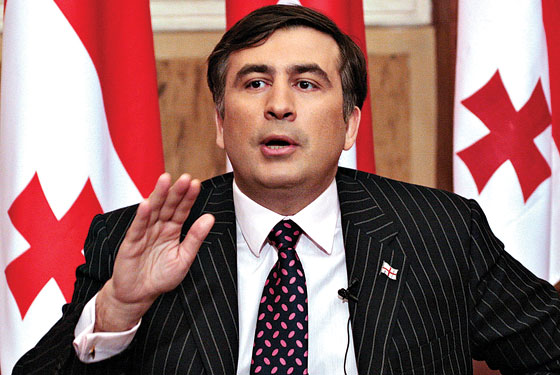
Fifteen years before his country was invaded—or, perhaps, reinvaded—by Russia, Georgian president Mikheil Saakashvili was learning about the American system of law and living on the Upper West Side. He arrived here in 1993, spent a year at Columbia earning a master’s in law, and then worked one year as an associate at Patterson Belknap Webb & Tyler before returning to the newly independent former Soviet republic. He was elected president in 2004 and has led a stridently pro-Western government, contributing troops to Iraq and clamoring to join NATO. Apparently, he thought the United States would back him when he attempted to retake South Ossetia, a breakaway region supported by Russia. His miscalculation wasn’t surprising when you consider his two years in New York: He fell in love with the West and had studied up on the finer points of international law, which he now thinks is on his side.
“He was a very energetic and spirited individual,” remembers George Bermann, who taught him European Union law and transnational litigation and arbitration. “He took the types of classes people who want to change the world took,” says Lori Damrosch, who led his International Institutions in Transition seminar. (Saakashvili wrote his paper on humanitarian interventions.) Later, at Patterson Belknap, he worked in the international-law group. He was “always concerned about corruption issues,” says Scott Horton, the former Patterson partner who supervised him. Once, when Saakashvili was going home for the holidays, Horton asked him to dig around for information that could be helpful in an arbitration involving a Ukrainian steel plant. Saakashvili returned with “an incredible wealth of information about all the inside deals relating to the plant. He got far more than we thought possible.” Their client won at arbitration.
Damrosch isn’t sure how to reconcile the student of peacekeeping with the current wartime leader. “The Russians say he triggered it by taunting the Russian bear. That doesn’t cohere with the person I knew. But if it came from a principled position of defending the territorial integrity of his country, that would.”
Have good intel? Send tips to intel@nymag.com.